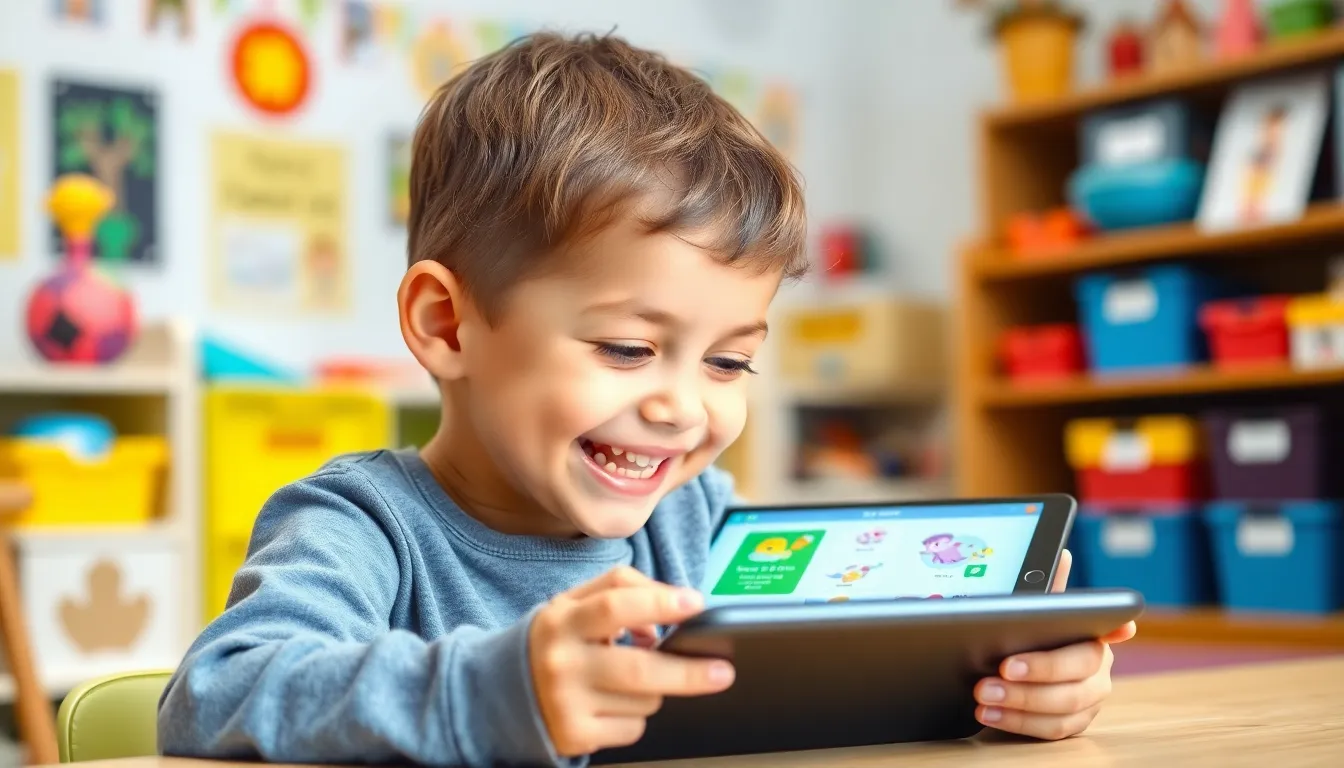In the wild world of parenting, where chaos often reigns supreme, mutual respect can feel like an elusive unicorn. Yet, cultivating a relationship built on respect not only makes life easier but also transforms the family dynamic into something magical. Imagine a home where kids actually listen (gasp!) and parents feel heard—sounds like a fairy tale, right?
But it’s not just about avoiding the dreaded “Because I said so!” argument. Parenting with mutual respect fosters open communication, encourages independence, and builds trust. When both sides feel valued, everyone wins. So, buckle up for a journey that promises to make parenting less about power struggles and more about partnership. After all, if respect can work in the boardroom, why not at home?
Table of Contents
ToggleUnderstanding Parenting With Mutual Respect
Parenting anchored in mutual respect fosters healthier family dynamics. This approach creates an environment where both parents and children feel valued.
Definition of Mutual Respect in Parenting
Mutual respect in parenting defines a relationship where both parties acknowledge and honor each other’s feelings, opinions, and rights. Children learn to express their thoughts in a safe space, while parents model understanding and empathy. Respect doesn’t mean constant agreement; it allows for different perspectives to coexist without diminishing anyone’s worth. Establishing this respect involves active listening and validation, demonstrating commitment to open dialogue.
Importance of Mutual Respect in Parent-Child Relationships
Mutual respect significantly enhances parent-child relationships. Trust builds when children feel their voices matter. They develop independence, making decisions within safe boundaries. Open communication flourishes, empowering kids to share their feelings without fear of judgment. This dynamic reduces power struggles, encouraging collaboration rather than conflict. Research indicates that children raised in respectful environments exhibit higher self-esteem and better social skills, reinforcing the positive impact of this parenting style.
The Principles of Parenting With Mutual Respect
Parenting with mutual respect revolves around creating an environment that nurtures communication and understanding. Focus makes a significant difference in the dynamic between parents and children.
Open Communication
Open communication serves as a cornerstone in fostering mutual respect. Children need to feel secure in expressing their thoughts and feelings. Parents should create opportunities for discussions, encouraging their kids to share without fear of judgment. Establishing an open-door policy can lead to more honest exchanges. When children see their parents valuing their input, they develop confidence and a stronger sense of self. This environment nurtures trust, paving the way for cooperative problem-solving.
Active Listening
Active listening plays a crucial role in honoring children’s perspectives. Parents must engage fully during conversations, focusing on what their children express. Maintaining eye contact and acknowledging feelings fosters a comforting atmosphere. It’s important to refrain from interrupting, allowing children to articulate their thoughts fully. Feedback should include both verbal affirmations and non-verbal gestures, reinforcing that their voices matter. When parents listen actively, they validate their children’s experiences, which strengthens the parent-child bond and supports healthy emotional development.
Strategies for Implementing Mutual Respect
Implementing mutual respect in parenting involves practical strategies that promote collaboration and understanding. These approaches foster strong family bonds and support children’s growth.
Setting Boundaries Together
Setting boundaries collaboratively encourages shared responsibility and mutual understanding. Parents should discuss rules with children, inviting their input on expectations. This cooperation empowers children to take ownership of their actions. An effective way to approach this is by creating a list of rules and reviewing them together, ensuring everyone feels heard. Modify rules as needed, allowing for adjustments based on maturity and behavior. When children see their perspectives valued, they are more likely to respect boundaries. This shared process builds trust while simultaneously reinforcing family unity.
Encouraging Independence
Encouraging independence supports children’s development while demonstrating mutual respect. Offering choices fosters autonomy, allowing children to make decisions relevant to their lives. Start with small, everyday options, such as what to wear or which activity to pursue. Gradually introduce more significant choices, empowering children to navigate their responsibilities. Providing appropriate consequences for their decisions enhances accountability. Acknowledge their successes and failures equally; this validation strengthens self-esteem. As children feel trusted, their confidence in making choices grows, reinforcing the importance of mutual respect in the family dynamic.
Benefits of Parenting With Mutual Respect
Parenting with mutual respect offers numerous benefits for families. It cultivates a positive atmosphere and strengthens relationships among family members.
Strengthening Family Bonds
Building trust creates deeper connections within families. Mutual respect encourages family members to communicate openly, fostering emotional intimacy. Parents who practice respect demonstrate value for their children’s thoughts and feelings, leading to increased cooperation. Children often feel more secure in expressing themselves, which enhances their willingness to engage with parents. This approach empowers families to navigate conflicts with understanding, reinforcing unity. Ultimately, the bonds formed through mutual respect contribute to a supportive environment that nurtures lifelong relationships.
Enhancing Child Development
Respectful parenting significantly influences children’s growth. Children nurtured in these environments tend to exhibit higher self-esteem, which correlates with greater confidence. Critical thinking skills develop as they learn to articulate perspectives within a respectful dialogue. Independence flourishes when children are given choices and encouraged to make decisions, building accountability. Emotional intelligence emerges as they experience empathy from their parents. Research shows that respectful interactions promote better social skills, enhancing relationship-building abilities among peers. Such development prepares children for success in their future interactions, both personally and professionally.
Conclusion
Embracing mutual respect in parenting creates a nurturing environment where both parents and children thrive. This approach fosters open communication and strengthens relationships, allowing family members to express themselves freely.
By prioritizing respect, parents empower their children to develop autonomy and decision-making skills. This not only enhances self-esteem but also prepares children for future interactions in various aspects of life.
Ultimately, parenting with mutual respect cultivates a positive atmosphere that benefits everyone in the family, reinforcing trust and emotional connections that last a lifetime.








